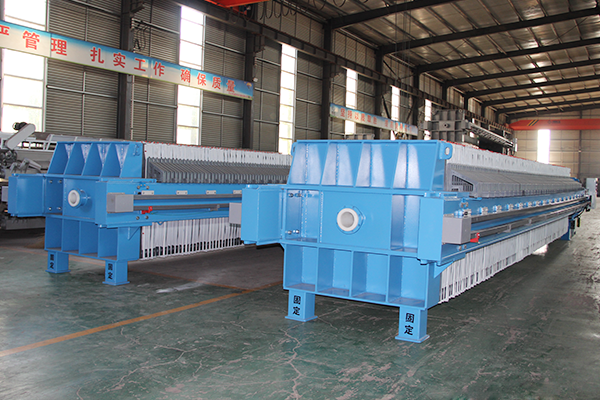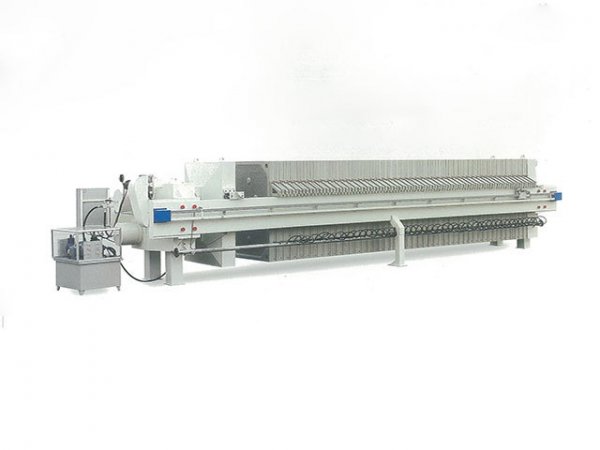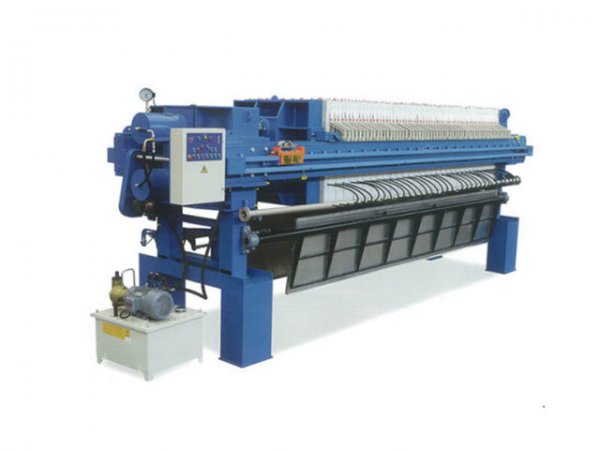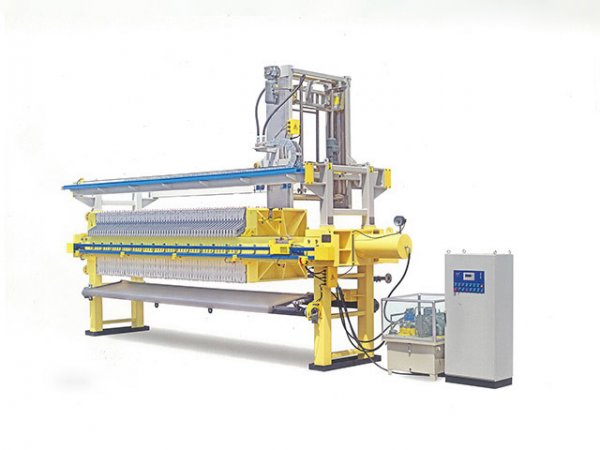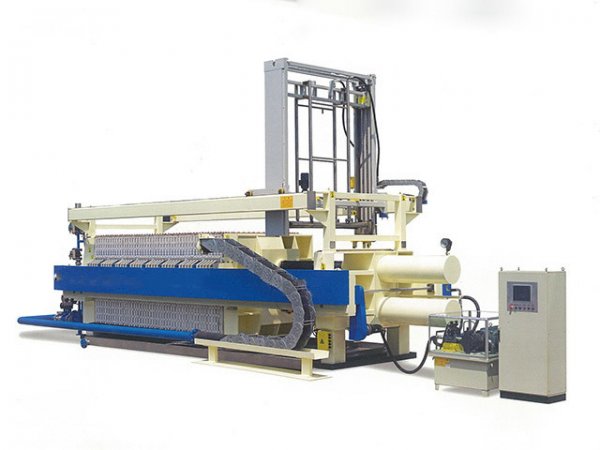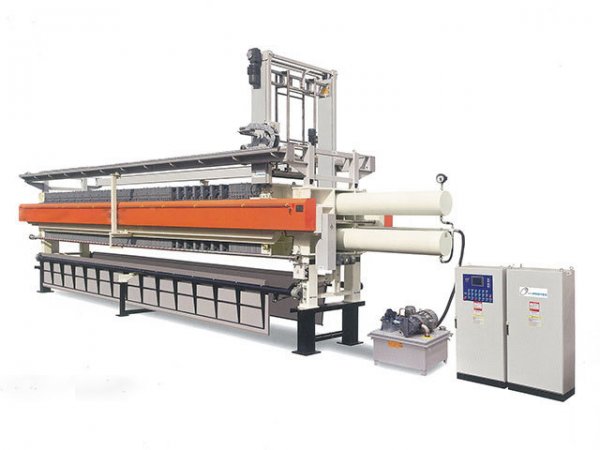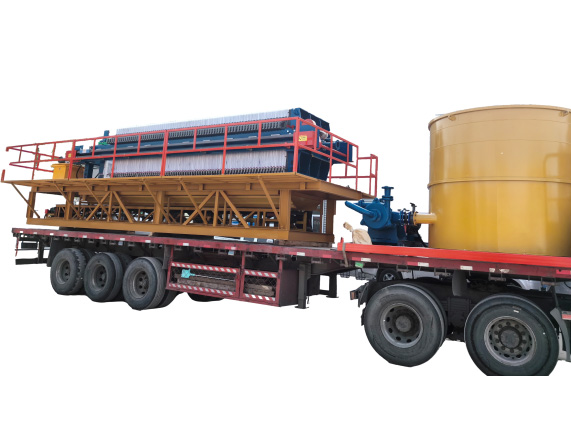NewsDetails
Plate and Frame Filter Press vs. Other Filtration Equipment: A Comparative Analysis of Advantages and Disadvantages, and Selection Recommendations
author:Shuangcheng time:2025-06-20 05:15:27 Click:198
In the industrial solid-liquid separation process, the selection of filtration equipment directly impacts production efficiency, cost control, and product quality. Different types of filtration equipment possess distinct characteristics and are suitable for varying scenarios. This article provides a multi-dimensional comparison between the Plate and Frame Filter Press and other common filtration equipment, offering references for scientific selection.
I. Overview of Common Filtration Equipment Types
(1) Plate and Frame Filter Press
The Plate and Frame Filter Press consists of alternating filter plates and frames. It relies on a hydraulic system to compress them, forming filtration chambers where solid-liquid separation occurs under pressure. Its advantages include the ability to provide high filtration pressure, resulting in filter cakes with high solid content. It is commonly used in fields requiring high separation precision. However, this equipment operates intermittently and involves significant manual intervention.
(2) Chamber Filter Press
The Chamber Filter Press features integrated filter plates with convex structures on both sides, forming sealed filtration chambers when combined. It has a compact structure, large filtration area, and can operate automatically, making it suitable for various industrial scenarios. Compared to the Plate and Frame Filter Press, the Chamber Filter Press requires less frequent filter cloth replacement and is easier to maintain, but it offers relatively lower filtration pressure.
(3) Membrane Filter Press
The Membrane Filter Press incorporates elastic membrane components into the Chamber Filter Press design. After filtration, compressed air or liquid is introduced into the membranes to perform a secondary pressing on the filter cake, significantly reducing its moisture content. This equipment is particularly suitable for processing materials with high moisture content, but it comes with a relatively high equipment cost.
(4) Belt Filter Press
The Belt Filter Press achieves dewatering by squeezing materials between two tensioned filter belts. It operates continuously, has a high processing capacity, and is easy to operate. With a high degree of automation and low energy consumption, it is suitable for processing materials with large particle sizes and low viscosity. However, it has certain limitations in terms of filtration precision and control over filter cake moisture content.
II. Multi-Dimensional Comparative Analysis of Advantages and Disadvantages
(1) Filtration Principle and Efficiency
The Plate and Frame Filter Press operates intermittently, requiring plate pulling and cake discharge operations. It can provide high filtration pressure, making it suitable for small-batch, high-precision separations. The Chamber Filter Press operates continuously and automatically, with stable filtration efficiency. The Membrane Filter Press enhances filter cake dewatering through a "filtration + pressing" process. The Belt Filter Press has a high continuous feed processing capacity but offers lower filtration precision compared to the first three types.
(2) Equipment Cost
In terms of initial investment, the Plate and Frame Filter Press has the lowest cost, followed by the Chamber Filter Press. The Membrane Filter Press, due to its complex structure, has the highest cost. The Belt Filter Press, requiring various supporting devices, falls in the middle range. Regarding operating costs, the Plate and Frame Filter Press incurs high consumable costs due to frequent filter cloth replacement. The Belt Filter Press has notable maintenance expenses for filter belts. The Membrane Filter Press, with increased energy consumption during the pressing phase, has moderate overall operating costs.
(3) Maintenance Difficulty and Lifespan
The Plate and Frame Filter Press requires frequent filter cloth cleaning and replacement, as well as high maintenance for the hydraulic system. Its lifespan is significantly affected by filter plate wear. The Chamber Filter Press has a simple structure and low maintenance workload. The Membrane Filter Press necessitates regular membrane inspections, leading to higher maintenance costs. The Belt Filter Press requires frequent lubrication and adjustment of mechanical components, with a high maintenance frequency but low technical difficulty.
(4) Suitability for Material Characteristics
The Plate and Frame Filter Press excels in processing materials with fine particles and high solid content requirements. The Chamber Filter Press has strong versatility and can adapt to various materials. The Membrane Filter Press is the preferred choice for deep dewatering of materials with high moisture content. The Belt Filter Press is suitable for processing large quantities of materials with coarse particles and is not suitable for fine separations.
III. Selection Recommendations for Different Industries
(1) Chemical Industry
Chemical materials often exhibit corrosive properties or high added value, requiring high separation precision. The Plate and Frame Filter Press can be优先考虑 (prioritized), with appropriate filter plate materials selected based on corrosion resistance. If the processing volume is large and the material particles are coarse, the Chamber Filter Press is a more economical choice.
(2) Mining Industry
Solid-liquid separation in mining mainly involves tailings treatment and mineral concentration, requiring large material processing volumes and coarse particles. The stability of the Chamber Filter Press and the continuous operation capability of the Belt Filter Press align well with these needs. For dry discharge of high-moisture tailings, the deep dewatering performance of the Membrane Filter Press offers advantages.
(3) Sewage Treatment
In municipal sewage treatment, sludge dewatering is crucial. The Belt Filter Press is suitable for large-scale continuous processing, with outstanding cost-effectiveness. If further reduction of sludge moisture content is required to meet stricter environmental standards, the Membrane Filter Press is more appropriate.
(4) Food Industry
Food processing imposes strict hygiene requirements on equipment. The Plate and Frame Filter Press, with its easy disassembly and cleaning features, is suitable for scenarios such as juice clarification. The Belt Filter Press, with its high processing capacity and large contact area, is suitable for processing food waste residues.
IV. Summary and Selection Recommendations
(1) Summary of Core Advantages and Disadvantages
The Plate and Frame Filter Press offers high precision but requires significant maintenance. The Chamber Filter Press provides good cost-effectiveness and broad applicability. The Membrane Filter Press achieves excellent dewatering but comes with high costs. The Belt Filter Press has a large processing capacity but lacks precision.
(2) Comprehensive Selection Strategy
For small-scale, high-precision separation needs, the Plate and Frame Filter Press is the preferred choice. For medium-scale, general-purpose scenarios, the Chamber Filter Press is recommended. For deep dewatering of materials with high moisture content, the Membrane Filter Press is suitable. For large-scale continuous production with low precision requirements, the Belt Filter Press can be considered. When selecting equipment, it is essential to comprehensively consider material characteristics, production scale, budget, and maintenance capabilities to achieve a balance between equipment performance and cost.
V. Industry Development Trend Outlook
In the future, filtration equipment will evolve towards intelligence, energy conservation, and environmental protection. Various equipment types will continuously integrate automation functions to reduce labor costs. Through material innovation and technological upgrades, equipment performance will be enhanced, and energy consumption will be reduced to adapt to more complex working conditions and stricter environmental requirements.
 Recommended Products
Recommended Products
 Contact us
Contact us
—— Contact:Manager
—— Tel:+86 16632826789
—— Email:sales@hbscfilterpress.com
—— Url:https://www.hbscfilterpress.com
—— Address:West Zone of Economic Development Zone, Fucheng County, Hengshui City, Hebei Province

